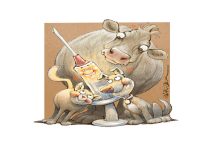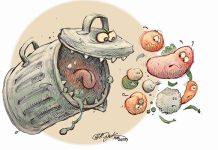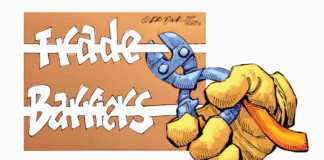
Photo: FW Archive
South Africa has the potential to become a world leader in the red meat industry. The country boasts outstanding producers and world-class genetics within its herds.
The role players in the local industry – the Red Meat Producers’ Organisation, the National Emergent Red Meat Producers’ Organisation, the South African Feedlot Association, and the Red Meat Abattoir Association – are well aware of this potential.
In 2021, the role players responsible for establishing the Red Meat and Livestock Primary Cluster joined forces to establish a strategy aimed at transforming the industry from a marginal surplus producer to a sustainable and competitive industry from which everyone could benefit.
The group identified several key goals, including:
- Facilitating production value growth of R8,3 billion;
- Adding 250 000 more weaner calves to the market by 2030;
- Facilitating 20% export market growth; and
- Boosting the red meat industry by a potential R12 billion annually.
The group founded the non-profit company Red Meat Industry Services (RMIS) in 2022 to perform the services linked to the statutory levies that producers pay. This initiative aligns with the industry’s Red Meat Strategy 2030.
RMIS’s four focus areas are:
- Animal and public health that comply with government guidelines and international market standards;
- Market access for commercial and emerging producers;
- Inclusive growth aimed at assisting producers in taking their farms to the next level to achieve these goals; and
- Competitiveness and sustainability considering that the import market’s biggest demand is the sustainable supply of red meat.
The importance of a step-by-step approach in achieving the goals of the Red Meat Strategy 2030 cannot be emphasised enough, says Dewald Olivier, CEO of RMIS.
“Income from statutory levies is limited, and it is crucial that RMIS, through the functions it performs, restores trust among levy payers by clearly showing them how they will benefit,” he says.
This year, the following 10 projects will take priority:
- Functional record-keeping and data-sharing systems focused on national traceability aligned with export requirements;
- Inclusive growth achieved through knowledge sharing, small-scale producer development, making mobile livestock processing units available (especially to small-scale producers), and comprehensive business growth solutions;
- An industry survey involving an animal health system that will release data during national disease outbreaks, allowing for proactive steps to be taken;
- A record-keeping system for operational meat safety and carcass data;
- The development of a South African red meat certification system to assure consumers of sustained biosecurity, animal health, and meat safety;
- Combating livestock theft;
- Production and producer development;
- Consumer training by Beef and Lamb SA to increase red meat consumption and provide agricultural educators with improved training through an e-learning programme;
- Abattoir standardisation; and
- An audit of abattoir and export facilities.
For more information, email [email protected], or visit rpo.co.za or rmis.co.za.













